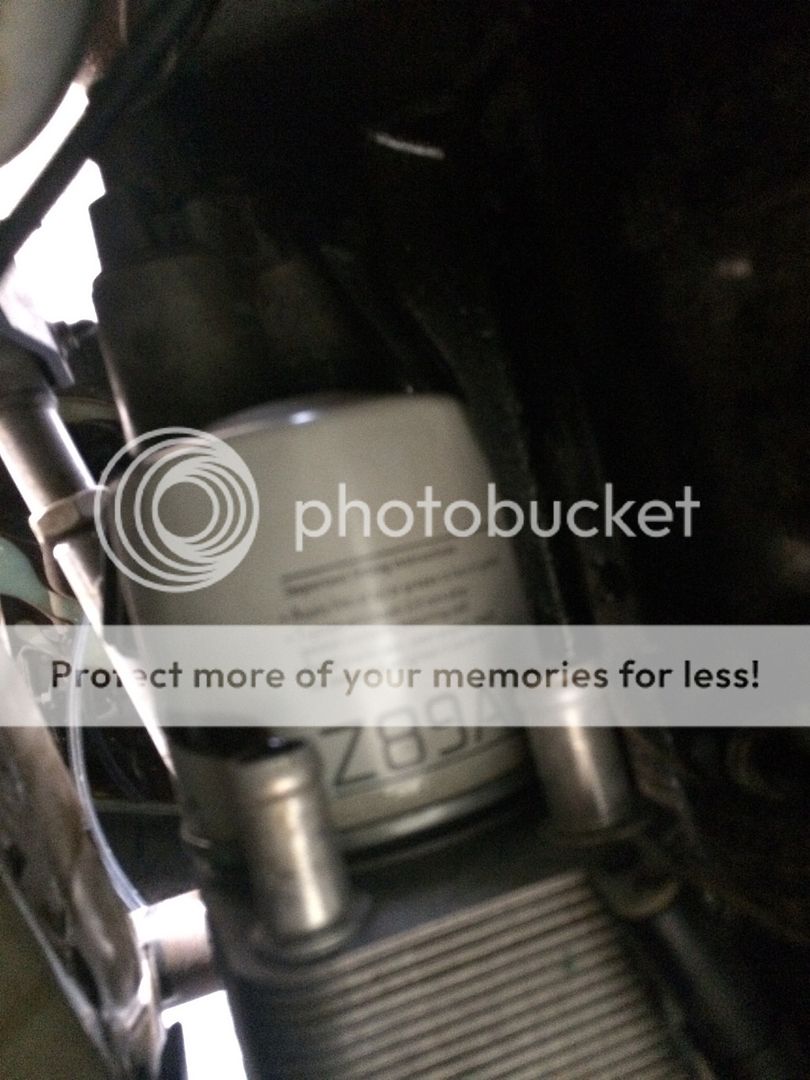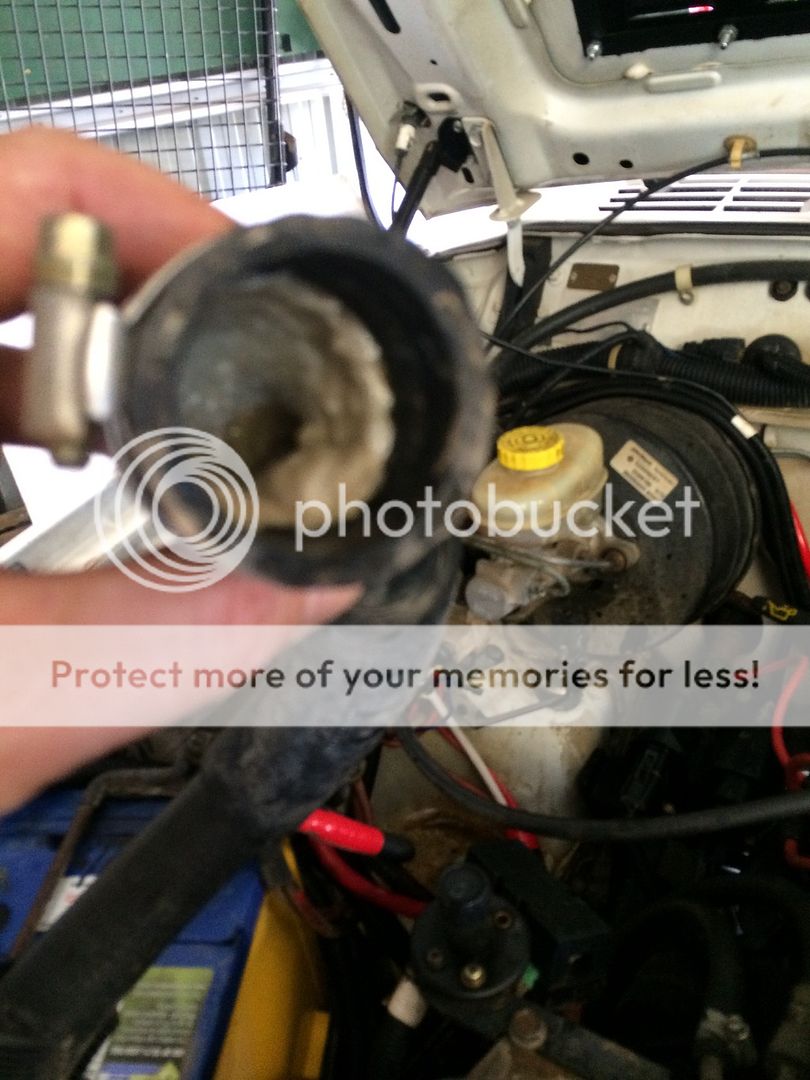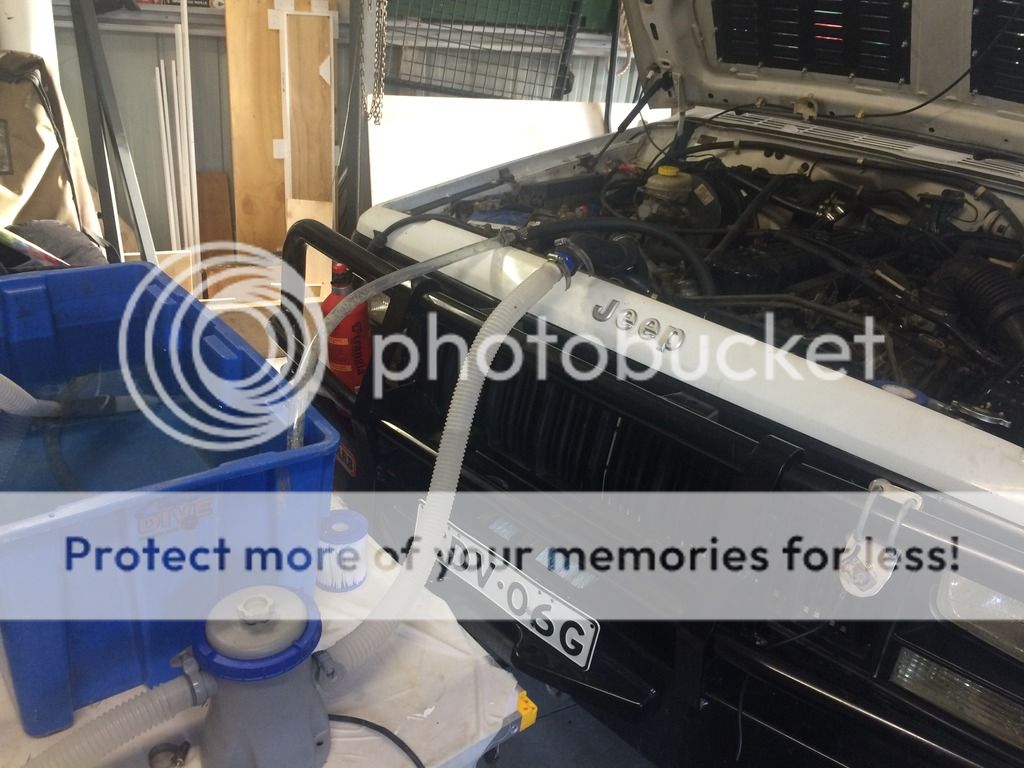Rainman
NAXJA Forum User
- Location
- Sydney, Australia
So I had oil in the water, the oil was going down, no water in the oil, and no water in the exhaust. Spark plugs looked fine.
Did a chemical test for carbon monoxide, no carbon monoxide found as it did not turn from blue to pink. So indications are head gasket is fine.

WTF?
Turns out the the MOPAR oil / coolant heat exchanger was leaking oil into the coolant. with the engine running you can see the oil coming out of where the coolant hose is supposed to hook up.

so now I have to clean up the emulsified oil from the inside of the coolant system. every hose or fitting i have seen is just caked in this oily gunk. Dish washing liquid works of you scrub it off but otherwise does not touch it.

I ended up using petrol to clean out the radiator header tank!
I think the gunk coating the coolant galleries explains the massive heat spike.

I'm going to try this set up with some dish washer machine detergent. any other ideas/ comments welcome.
Will a standerd coolant flush get rid of that sort of gunk build up.
This is a one year old rebuilt engine. all the gunk is new.
Did a chemical test for carbon monoxide, no carbon monoxide found as it did not turn from blue to pink. So indications are head gasket is fine.

WTF?
Turns out the the MOPAR oil / coolant heat exchanger was leaking oil into the coolant. with the engine running you can see the oil coming out of where the coolant hose is supposed to hook up.

so now I have to clean up the emulsified oil from the inside of the coolant system. every hose or fitting i have seen is just caked in this oily gunk. Dish washing liquid works of you scrub it off but otherwise does not touch it.

I ended up using petrol to clean out the radiator header tank!
I think the gunk coating the coolant galleries explains the massive heat spike.

I'm going to try this set up with some dish washer machine detergent. any other ideas/ comments welcome.
Will a standerd coolant flush get rid of that sort of gunk build up.
This is a one year old rebuilt engine. all the gunk is new.
